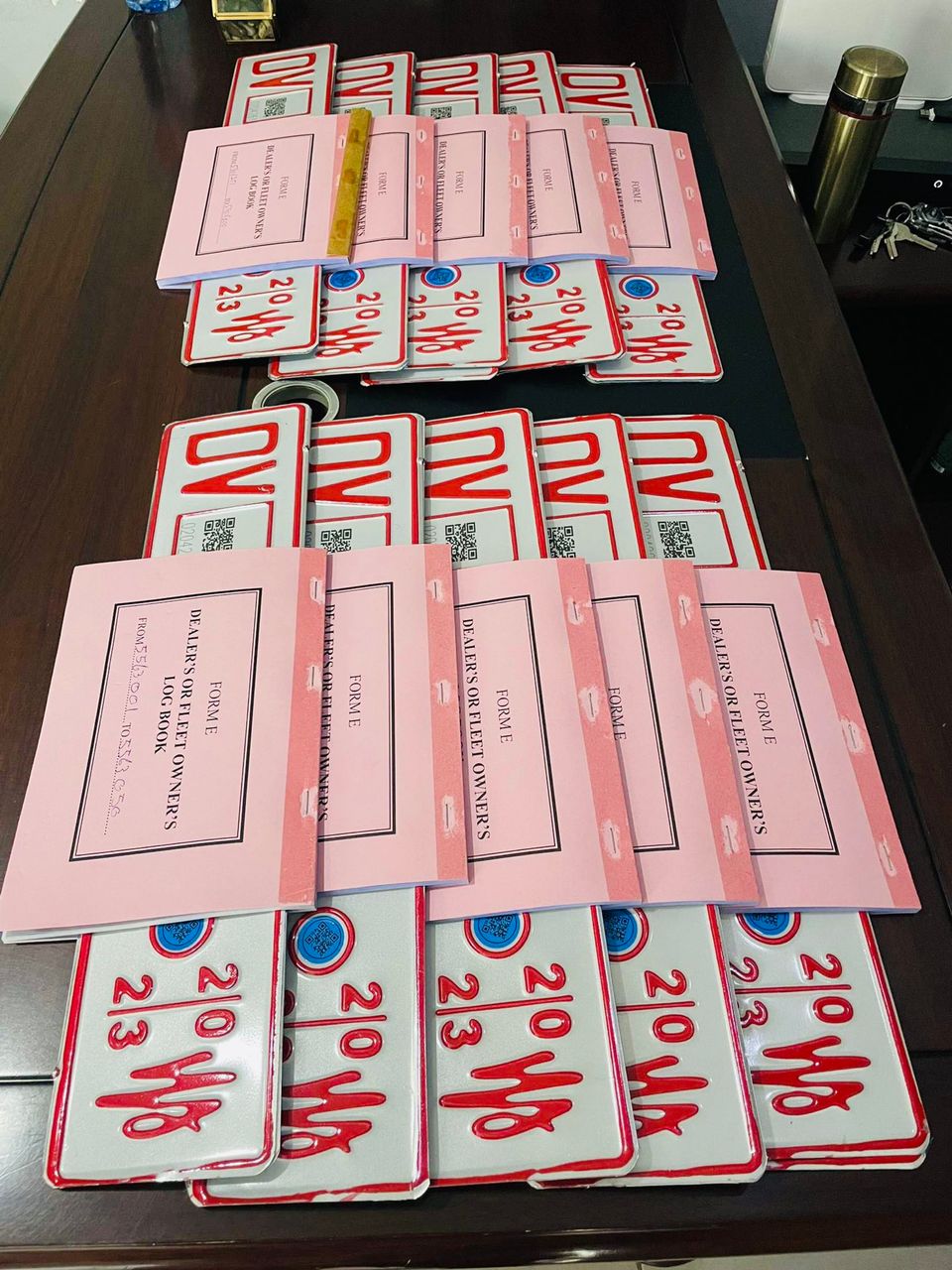In Ghana today, drivers are concerned about the misuse of the vehicle registration system. Increasingly, car owners and dealers are choosing not to properly register their vehicles, instead continuing to use DV number plates for extended periods. The DV plates, which are issued by the Driver and Vehicle Licensing Authority (DVLA) to car owners yet to register their vehicles. These vehicles could be in the process of sale or testing.
Another important reason for the DV plates was simple; to allow dealers and sellers to legally transport unregistered vehicles without complications, but only for a short period. However, in Ghana, DV plates have become a way to make old or used cars appear “new” to potential buyers.
Due to this growing trend, many buyers wrongly assume that a car with a DV plate must be brand new or barely used. They fail to check crucial factors such as mileage, maintenance history, or the overall condition of the vehicle—elements that should be the most important considerations when purchasing a car. This has led to frustration among ordinary buyers who end up disappointed and among car enthusiasts who believe the system is being exploited. Even within Ghana’s vibrant car community, where vehicle knowledge is usually higher, people are voicing concerns about how this system is misleading and causing serious issues. The frustration has become so widespread and has led to raised concerns on social media.
Musician Criss Waddle, who is known for his love of luxury and high-performance cars, joins the long list of disgruntled social media users and has called on the government to address the challenge.
The singer expressed displeasure about the design of Ghana’s plate numbers. Currently, number plates display the year of a car’s registration. For example, a plate like “GN 3028-13” indicates the region (GN for Greater Accra), the car’s serial number, and “13,” meaning it was registered in 2013. The format makes the buyer more focused on the plate rather than assessing if the car itself is still in good mechanical and physical condition. Criss Waddle suggests that Ghana should take inspiration from countries like the United States and remove the year from registration plates entirely. In the U.S., license plates consist of random numbers and letters—such as “BJX10TV”—meaning no one can immediately determine a car’s age just by looking at the plate. This forces buyers to be more diligent in evaluating the vehicle’s condition, rather than relying solely on its registration year.
Adopting a similar system in Ghana would resolve many of the issues currently faced. Buyers would have no choice but to exercise greater caution and responsibility when purchasing cars, and dealers would be more transparent in their sales practices. Proper documentation and transparency would improve across the industry. Additionally, if the use of DV plates were strictly regulated—perhaps by enforcing a time limit of 30 to 60 days, after which full registration becomes mandatory—the DVLA could generate more revenue through proper registrations.
Currently, DV plates are being exploited to avoid paying full registration fees. This practice is to the detriment of the DVLA and law-abiding citizens who follow the correct procedures. In the long run, this abuse also affects road safety, as vehicles that remain unregistered often bypass essential checks such as roadworthiness certification and insurance validation.
This issue demands urgent attention, as the situation has become increasingly problematic and continues to worsen. Currently, a 2020 Toyota Corolla with a DV plate can be sold at a higher price than a fully registered 2022 Hyundai Elantra. This discrepancy is illogical, as buyers are paying more simply due to the misconception that ‘DV means new,’ without realizing they could be purchasing a heavily used vehicle with high mileage or hidden mechanical issues—potentially leading to costly repairs down the line.
To create a fairer and more transparent system, Ghana must adopt smarter regulations that protect both buyers and the automotive industry. Eliminating the registration year from number plates and enforcing stricter controls on DV plate usage would enhance market transparency, encourage responsible dealership practices, and increase revenue for the DVLA through proper registrations. Most importantly, these changes would shift buyers’ focus to what truly matters when purchasing a vehicle—its condition, maintenance history, and overall reliability, rather than just the year it was registered. Ghana deserves a modernized vehicle registration system that aligns with global automotive standards, prioritizing accuracy, fairness, and quality.




